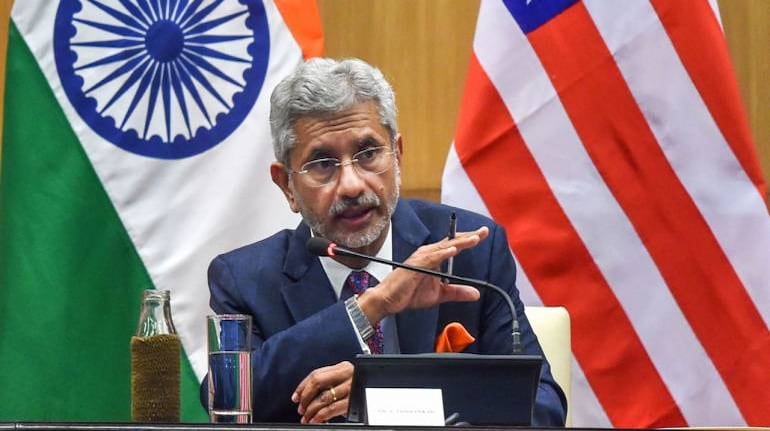



India imposed a ban on wheat exports to protect the domestic market and to cut access for speculators, Indian External Affairs Minister, Subrahmanyam Jaishankar, told the Globsec 2022 Bratislava Forum on June 3.
Lower output coupled with strong domestic demand had pushed the Indian government to impose a wheat ban on exports on May 14. However, trading firms that had already secured letters of credit (LCs) to export grain before the ban were allowed to proceed with those sales.
The government had also made abundantly clear that it would continue to cater for the genuine need of neighbouring countries and food-deficit nations through government-to-government deals and fulfil supply commitments already made.
"What we saw was that the low-income buyers were being squeezed out, the wheat was growing, but was actually being stopped from being traded, in a way our goodwill was being used for speculation. So, we had to do something to stop that, because it was also impacting us at home - prices were going up," explained Jaishankar.
He further added, "So, I want to be very clear about what we have done. We have actually said: look, we are not going to give speculators an open access to the Indian market, so that the Indian customer and the LDCs (least developed countries) of the world get the short end of that."
According to a report by Financial Express, Indonesia and Bangladesh emerged as the biggest beneficiaries of the post-ban despatches in May, with each importing at least 1 lakh tonnes of Indian wheat. Moreover, the directorate general of foreign trade (DGFT) had earlier allowed exports of 61,500 tonnes to Egypt. These supplies also include aid.
Jaishankar recalled that last year, India shipped out about 7 million tonnes of wheat, while typically, the country exports about 2-3 million tonnes.
Notably, until June 2 this fiscal year, 27.4 lakh tonnes of wheat (worth $902 million) have been shipped out, almost four times from a year before. In FY22, the country had exported a record 72 lakh tonnes of wheat worth $2.12 billion, according to FE.
India has also maintained that it wants to continue wheat export to its traditional buyers and developing nations who are sincerely in need.
While India wants to prevent a diversion of wheat to high-income countries with a greater possibility to buy, Jaishankar said, we also want to focus on its traditional buyers, such as Bangladesh, Sri Lanka, Nepal, Yemen, and Sudan.
"This year, before the heat wave hit us pretty badly, the expectation was that we would do substantial exports…. But what we then saw was a run on our wheat. A large part of it done by international traders," Jaishankar said, adding that "what we saw happened with the vaccines, we do not want to see it happen with the wheat, which was that rich people got vaccinated and the poor were left to God's end.”
Other than Indonesia and Bangladesh, many wheat importing countries such as the UAE, South Korea, Oman and Yemen, plus member states of G7, are among a growing list of countries that have requested India to reconsider its wheat ban. The government is taking their requests into consideration.
Discover the latest Business News, Sensex, and Nifty updates. Obtain Personal Finance insights, tax queries, and expert opinions on Moneycontrol or download the Moneycontrol App to stay updated!